Taltos Read online
Page 47
To be born again in spirit was the essence of the religion. To become simple, humble, meek, loving, that was the gist of it.
Now step back a moment and see the whole picture. Not only was this god amazing and this story amazing; the whole question of the relationship of the tale to writing was amazing.
As you can tell from this narrative, the one thing we had once shared with our barbarian neighbors was that we distrusted writing. Memory was sacred to us, and we thought that writing was not good for it. We knew how to read and write. But we still distrusted it. And here was this humble god who quoted from the sacred book of the Hebrews, connected himself with its innumerable prophecies concerning a messiah, and then charged his followers to write about him.
But long before I'd finished the last gospel, pacing, reading aloud, holding the big altar book in two arms, with fingers curled over the tops of the pages, I came to love this Jesus for the strange things that he said, the way he contradicted himself, and his patience with those who killed him. As for his resurrection, my first conclusion was that he was as long-lived as were we--the Taltos. And that he had put one over on his followers because they were mere humans.
We had to do such tricks all the time, to assume different identities when speaking to human neighbors, so that they would become confused and fail to realize that we were living for centuries.
But I soon realized through Ninian's zealous instructions--and he was a joyful and ecstatic monk--that Christ had in fact risen from the dead. And truly ascended into heaven.
I saw in something of a mystical flash the whole picture--this god of love, martyred for love, and the radical nature of his message. In a mad way, the thing gripped me because it was so utterly unbelievable. Indeed, the entire combination of elements was cumbersome and preposterous.
And another fact--all Christians believed the world would end soon. And apparently--this emerged slowly from my conversations with Ninian--they always had! But preparing for this end of the world was also the essence of the religion. And the fact that the world hadn't ended yet discouraged nobody.
Ninian spoke feverishly of the growth of the church since Christ's time, some five hundred years before, of how Joseph of Arimathea, his dear friend, and Mary Magdalene, who had bathed his feet and dried them with her own hair, had come to England in the southern part, and founded a church on a sacred hill in Somerset. The chalice from Christ's last supper had been brought to that spot, and indeed a great spring flowed bloodred year-round from the magic presence of Christ's blood having been poured into it. And the staff of Joseph, having been put into the ground of Wearyall Hill, had grown into a hawthorn which had never ceased to flower.
I wanted to go there at once, to see the sacred place where Our Lord's own disciples had set foot on our own island.
"Oh, but please," cried Ninian, "my good-hearted Ashlar, you've promised to take me home to my monastery on Iona."
There the abbot, Father Columba, was expecting him. Many books such as this were being made in monasteries all over the world, and this copy was most important for study at Iona.
I had to meet this Columba. He sounded as strange as Jesus Christ! Perhaps you know the story. Michael, probably you know it.
This is how Ninian described Columba. Columba was born of a rich family, and might have in the scheme of things become King of Tara. Instead he became a priest and founded many Christian monasteries. But then he got into a battle with Finnian, another holy man, over whether or not he, Columba, had had a right to make a copy of the Psalter of St. Jerome, another holy book, which Finnian had brought to Ireland. A quarrel over the possession of the book? The right to copy?
It had led to blows. Three thousand men had died as a result of this dispute, and Columba had been blamed for it. He had accepted this judgment, and off he had gone to Iona, very near our coast, in order to convert us, the Picts, to Christianity. It was his plan to save three thousand pagan souls to exactly make up for the three thousand men who had died as the result of his quarrel.
I forget who got the copy of the Psalter.
But Columba was now at Iona and, from there, was sending missionaries everywhere. Beautiful books such as this were being made in these Christian compounds, and all were invited into this new faith. Indeed, Christ's church was for the salvation of everyone!
And it soon became clear that though Columba and many missionary priests and monks like him had been kings or persons of royal blood, the rule of the monasteries was extraordinarily severe, demanding constant mortification of the flesh and self-sacrifice.
For example, if a monk spilled milk while helping to serve at community meals, he must go into the chapel during the singing of Psalms and lie on his face, prostrate, until twelve of them had been completely finished. Monks were beaten when they broke their vows of silence. Yet nothing could restrain the rich and powerful of the earth from flocking into these monasteries.
I was dumbfounded. How could a priest who believed in Christ get into a war in which three thousand died! Why would the sons of kings submit to being lashed for common offenses? But, ah, it had a simple potency to it, a captivating logic.
I set out with Ninian and two of my recent sons to go to Iona. Of course we kept up our masquerade as human beings. Ninian thought we were human beings.
But as soon as I arrived at Iona, I became further spellbound by the monastery itself and the personality of Columba.
It was a magnificent island, forested and green, with splendid views from its cliffs, where the openness and cleanness of the sea brought peace to the soul immediately.
In fact, a wondrous calm descended upon me. It was as if I had found again the lost land, only now the dominant themes were penance and austerity. But the harmony was there, the faith in the sheer goodness of existence.
Now the monastery was Celtic, and not at all like the Benedictine monasteries which later covered Europe. It was made of a great circular enclosure--the vallum, as it was called--which suggested a fort, and the monks lived in small, simple huts, some no more than ten feet wide inside. The church itself was not grand, but a humble wooden structure.
But never was a complex of buildings more in keeping with its natural setting. It was a place to listen quietly to the birds, to walk, to think, to pray, to talk with the enchanting and friendly and truly gracious Columba. This man had royal blood; I had long been a king. Ours was the north country of Ireland and Scotland; we knew each other; and something in me touched the saint as well--the sincerity of the Taltos, the foolish way of coming directly to the point, an easy outpouring of enthusiasm.
Columba soon convinced me that the harsh monastic life and the mortification of the flesh were the keys to the love which Christianity demanded of a man. This love was not a sensual thing. This love was spiritually elevated beyond expression through the body.
He longed to convert my entire tribe, or my clan. He longed to see me an ordained priest among my people.
"But you don't know what you're saying," I said. And then, binding him under the seal of the confessional--that is, to eternal confidentiality--I told him the tale of my long life, of our secret and miraculous way of giving birth, of how it seemed that many of us seemed capable of living an endless life of eternal youth, unless accident or disaster or some specific pestilence destroyed us.
Some things I did not tell. I did not tell that I had once been the leader of the great circle dances at Stonehenge.
But all the rest I told, even of the lost land, and how we had lived in our glen for so many hundreds of years, passing from secrecy to a masquerade as human beings.
All this he listened to with great fascination. Then he said an amazing thing. "Can you prove these things to me?"
I realized that I could not. The only way any Taltos can prove he is a Taltos is by coupling with another and producing the offspring.
"No," I said, "but look well at us. Look at our height."
This he dismissed; there were tall men in the world. "People
have for years known of your clan; you are King Ashlar of Donnelaith, and they know you are a good ruler. If you believe these things about yourself, it is because the devil has put them into your imagination. Forget them. Proceed to do what God wants you to do."
"Ask Ninian, the whole tribe is of this height."
But he'd heard of that, very tall Picts in the Highlands. It seems my own ruse was working!
"Ashlar," he said, "I've no doubt of your goodness. Once again, I counsel you to disregard these illusions as coming from the devil."
Finally I agreed, for one reason. I felt that it made no difference whether he believed me or not about my past. What mattered was that he had recognized a soul in me.
Michael, you know that this was a great point in Lasher's tale--that, alive in the time of Henry, he wanted to believe that he had a soul, that he would not accept that he could not be a priest of God the same as a human.
I know this awful dilemma. All who are outsiders in their own way know it. Whether we talk of legitimacy, of a soul, of citizenship, or of brotherhood or sisterhood, it is all the same, we long to be seen as true individuals, as inherently valuable inside as any other.
This I longed for too, and I made the terrible error of accepting Columba's advice. I forgot what I knew to be true.
There on Iona, I was received into the Christian faith. I was baptized, and so were my sons. Another baptism was to follow, but for me and my sons it was only ceremonial. On that island, removed from the mists of the Highlands, we became Christian Taltos.
I spent many days at the monastery. I read all the books that were in it; I was charmed by the pictures, and very soon took to making copies of them. With official permission, of course. I copied a psalter, then a gospel, amazing the monks with my typical Taltos obsessive behavior. I drew strange beasts in brilliant colors by the hour. I made the priests laugh sometimes with bits of poetry I copied out. I pleased them with my good Greek and Latin.
What community had ever been more like the Taltos? Monk children is what they seemed, surrendering the entire concept of sophisticated adulthood to serve the abbot as their lord, and thereby serve their Lord Himself, the Crucified Christ who had died for them.
These were happy, happy days.
Gradually I began to see what many a heathen prince had come to see in Christianity: absolute redemption of everything! All my suffering made sense in light of the woes of the world and Christ's mission to save us from sin. All the disasters I'd witnessed had done nothing but improve my soul and school it for this moment. My monstrousness, indeed the monstrousness of all the Taltos, would be accepted by this church, surely, for all were welcome into it, regardless of race, it was an utterly open faith, and we could submit as well as any human being to the baptism of water and the spirit, to the vows of poverty, chastity, obedience.
The stringent rules, which bound even laymen to purity and restraint, would help us to control our terrible urge to procreate, our terrible weaknesses for dance and for music. And the music we would not lose; we would, within the constraints of the monastic life--which for me at this point was synonymous with the Christian life--sing our greatest and most joyful songs ever!
In sum, if this church accepted us, if it embraced us, all our past and future sufferings would have meaning. Our true loving nature would be allowed to flower. No subterfuge would be required any longer. The church would not let the old rituals be forced upon us. And those who dreaded the birthing now, as I did, out of age and experience and seeing so many young die, could consecrate themselves to God in chastity.
It was perfect!
At once, with a small escort of monks, I returned to the glen of Donnelaith and drew all my people together. We must pledge our allegiance to Christ, I told them, and I told them why, in long rippling speeches, not too fast for my human companions to understand, talking passionately of the peace and harmony that would be restored to us.
I also spoke of the Christian belief in the end of the world. Very soon all this horror would be over! And then I spoke of heaven, which I imagined to be like the lost land, except that no one would want to make love, everyone would be singing with the choirs of angels.
We must all now confess our sins and prepare to be baptized. For a thousand years I had been the leader, and all must follow me. What greater guidance could I give my people?
I stood back at the end of this speech. The monks were overcome with emotion. So were the hundreds of Taltos gathered in the glen around me.
At once began the heated discussions for which we were known--all in the human Art of the Tongue--the endless debates and telling of little tales and relating of this to that, and drawing memories into it where they seemed to pertain, and beneath it all the great theme: we could embrace Christ. He was the Good God! He was our God. The souls of the others were as open to Christ as was my soul.
A great many at once declared their faith. Others spent the afternoon, the evening, and the night examining the books I'd brought back, arguing somewhat about the things they'd heard, and there were some very fretful whispers about its being contrary to our nature to be chaste, absolutely contrary, and that we could never live with marriage.
Meantime I went out to the human beings of Donnelaith and preached this great conversion to them as well, and the monks followed me. We called all the clans of the valley together.
And in our great gathering ground, amid the stones, hundreds declared their desire to come to Christ, and indeed, some of the humans confessed they had already converted, maintaining it as a secret for their own protection.
I was very struck by this, particularly when I found that some human families had been Christian for three generations. "How very like us you are," I thought, "but you don't know it."
It seemed then that all were on the verge of conversion. En masse, we begged the priests to begin the baptisms and the blessings.
But one of the great women of our tribe, Janet, as we had come to call her, a name very current then, raised her voice to speak out against me.
Janet too had been born in the lost land, which she mentioned now quite openly before the human beings. Of course they didn't know what she meant. But we did. And she reminded me that she had no white streaks in her hair, either. In other words, we were wise and young, both of us, the perfect combination.
I had had one son by Janet, and truly loved her. I had spent many, many nights at play in her bed, not daring to have coitus, of course, but nursing from her rounded little breasts, and exchanging all kinds of other clever embraces that gave us exquisite pleasure.
I loved Janet. But there had never been any doubt in my mind that Janet was fierce in her own beliefs.
Now she stepped forth and condemned the new religion as a pack of lies. She pointed out all its weaknesses in terms of logic and consistency. She laughed at it. She told many stories which made Christians look like braggarts and idiots. The story of the gospel she declared unintelligible.
The tribe was immediately split. So loud was the talk that I could not even tell how many were for Janet's point of view or against it. Violent verbal quarrels ensued. Once again we undertook our marathon debates, which no human being could watch without realizing our differences.
The monks withdrew to our sacred circle. There they consecrated the earth to Christ, and prayed for us. They did not fully understand yet how different we were, but they knew we were not like other people.
At last a great schism occurred. One third of the Taltos refused utterly to be converted, and threatened battle with the others if we tried to make the glen a haven of Christianity. Some evinced a great fear of Christianity and the strife it would cause among others. Others simply did not like it, and wanted to keep to our own ways and not live in austerity and penance.
The majority wanted to convert, and we did not wish to give up our homes--that is, to leave the glen and go elsewhere. To me, such a possibility was unthinkable. I was the ruler here.
And like many a pagan king,
I expected my people to follow me absolutely in my conversion.
The verbal battles progressed to physical pushing and shoving and threats, and I saw within an hour that the entire future of the valley was threatened.
But the end of the world was coming. Christ had known this and come to prepare us. The enemies of Christ's church were the enemies of Christ!
Bloody skirmishes were being fought in the grasslands of the glen. Fires broke out.
Accusations were flung out. Humans who had always seemed loyal suddenly turned on Taltos and accused them of wretched perversity, of having no lawful marriage, no visible children, and of being wicked magicians.
Others declared that they had long suspected the Taltos of evil things, and now was the time to have it out, Where did we keep our young? Why did no one ever see any children among us?
A few crazed individuals, for reasons of their own, shouted the truth. A human who had mothered two Taltos pointed at her Taltos husband and told all the world what he was, and that if we were to sleep with human women we would soon annihilate them.
The frenzied zealots, of whom I was the most outspoken one, declared that these things no longer mattered. We, the Taltos, had been welcomed into the church by Christ and Father Columba. We would give up the old licentious habits, we would live as Christ would have us live.
There followed more confusion. Blows were struck. Screams rang out.
Now I saw how three thousand people could die in an argument over the right to copy a book! Now I perceived everything.
But too late. The battle had already commenced. All rushed to their brochs to take up arms and to defend their positions. Armed men poured out of doors, attacking their neighbors.
The horror of war, the horror I had sought to hide from all these years in Donnelaith, was now upon us. It had come through my conversion.

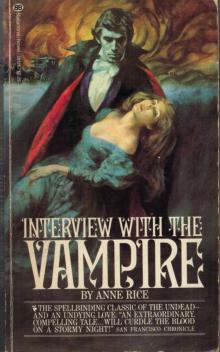 Interview with the Vampire
Interview with the Vampire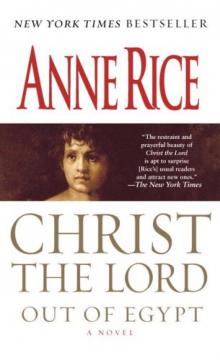 Christ the Lord: Out of Egypt
Christ the Lord: Out of Egypt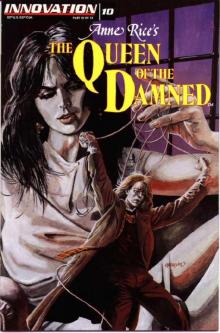 The Queen Of The Damned
The Queen Of The Damned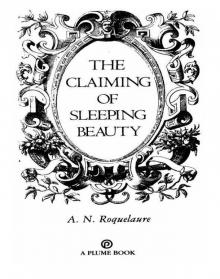 The Claiming of Sleeping Beauty
The Claiming of Sleeping Beauty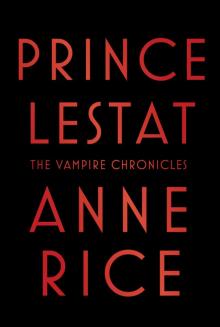 Prince Lestat
Prince Lestat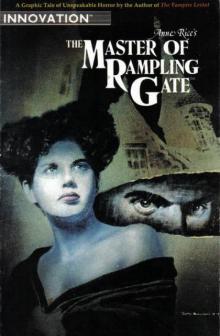 The Master of Rampling Gate
The Master of Rampling Gate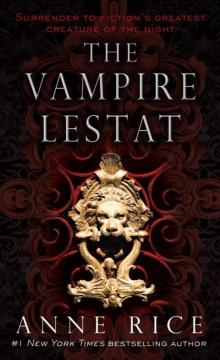 The Vampire Lestat
The Vampire Lestat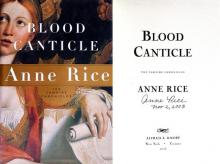 Blood Canticle
Blood Canticle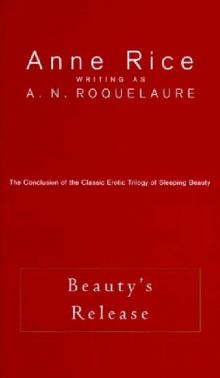 Beauty's Release
Beauty's Release Pandora
Pandora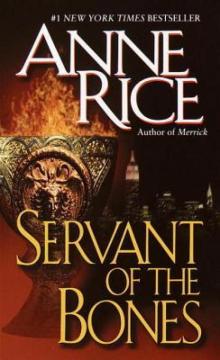 Servant of the Bones
Servant of the Bones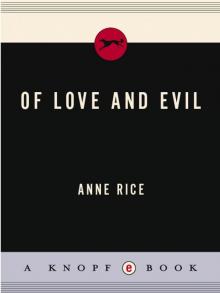 Of Love and Evil
Of Love and Evil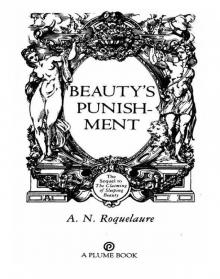 Beauty's Punishment
Beauty's Punishment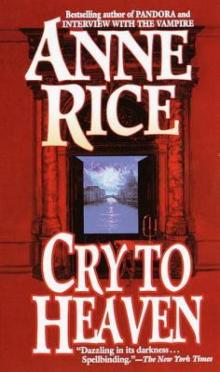 Cry to Heaven
Cry to Heaven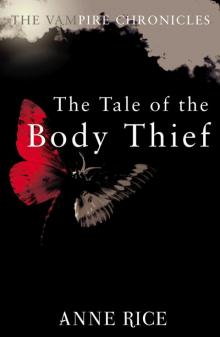 The Tale of the Body Thief
The Tale of the Body Thief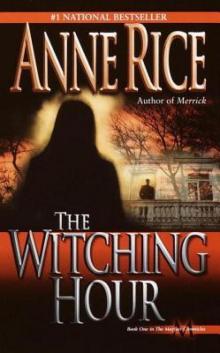 The Witching Hour
The Witching Hour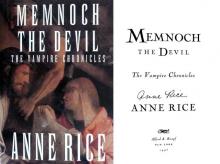 Memnoch the Devil
Memnoch the Devil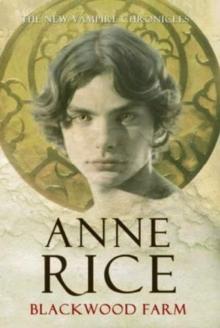 Blackwood Farm
Blackwood Farm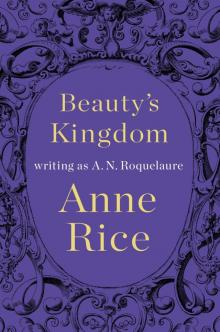 Beauty's Kingdom
Beauty's Kingdom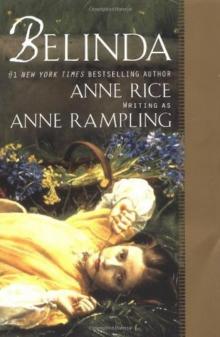 Belinda
Belinda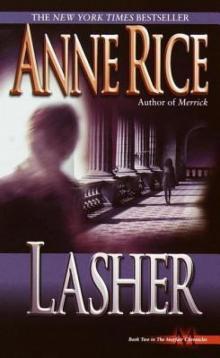 Lasher
Lasher Vittorio, the Vampire
Vittorio, the Vampire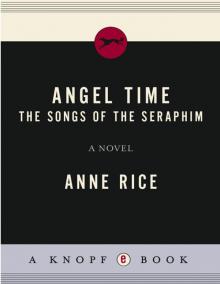 Angel Time
Angel Time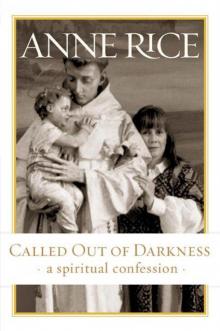 Called Out of Darkness: A Spiritual Confession
Called Out of Darkness: A Spiritual Confession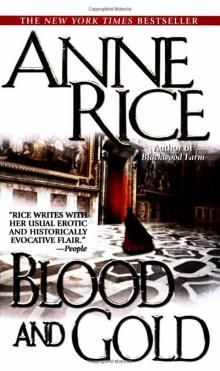 Blood And Gold
Blood And Gold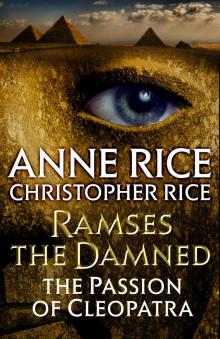 The Passion of Cleopatra
The Passion of Cleopatra Taltos
Taltos Exit to Eden
Exit to Eden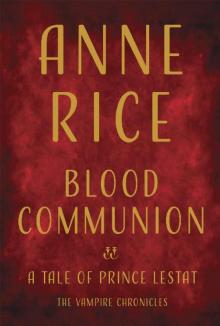 Blood Communion (The Vampire Chronicles #13)
Blood Communion (The Vampire Chronicles #13) The Wolf Gift
The Wolf Gift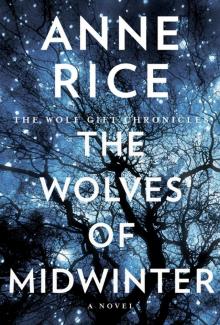 The Wolves of Midwinter
The Wolves of Midwinter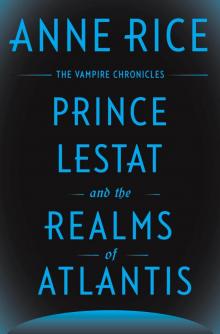 Prince Lestat and the Realms of Atlantis
Prince Lestat and the Realms of Atlantis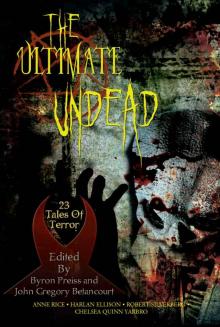 The Ultimate Undead
The Ultimate Undead The Vampire Lestat tvc-2
The Vampire Lestat tvc-2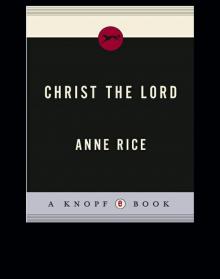 The Road to Cana
The Road to Cana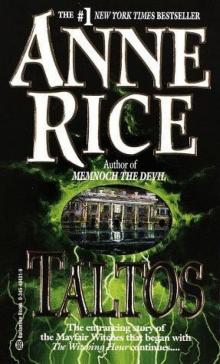 Taltos lotmw-3
Taltos lotmw-3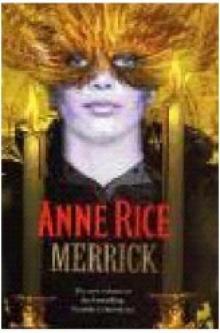 Merrick tvc-7
Merrick tvc-7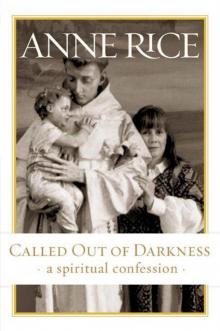 Called Out of Darkness
Called Out of Darkness Pandora - New Vampires 01
Pandora - New Vampires 01 Bllod and Gold
Bllod and Gold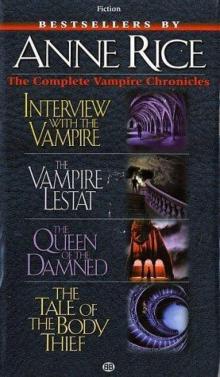 The Queen Of the Damned: Vampire Chronicles
The Queen Of the Damned: Vampire Chronicles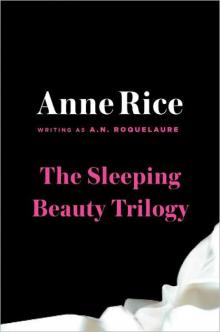 The Sleeping Beauty Trilogy
The Sleeping Beauty Trilogy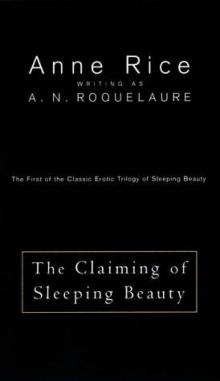 The Claiming of Sleeping Beauty b-1
The Claiming of Sleeping Beauty b-1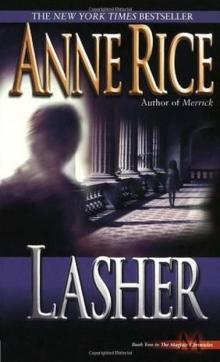 Lasher lotmw-2
Lasher lotmw-2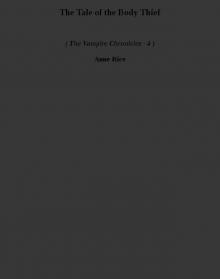 The Tale of the Body Thief tvc-4
The Tale of the Body Thief tvc-4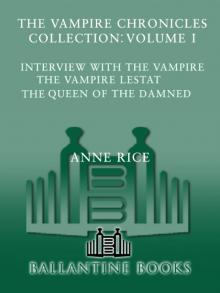 The Vampire Chronicles Collection
The Vampire Chronicles Collection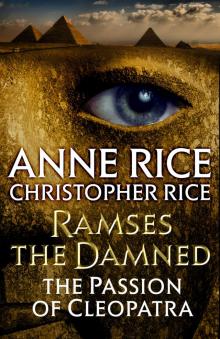 Ramses the Damned
Ramses the Damned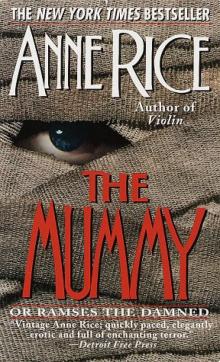 The Mummy - or Ramses the Damned
The Mummy - or Ramses the Damned Vittorio, The Vampire - New Vampires 02
Vittorio, The Vampire - New Vampires 02 The Vampire Armand tvc-6
The Vampire Armand tvc-6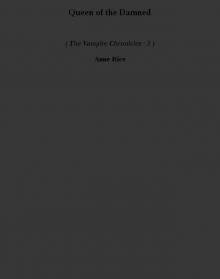 Queen of the Damned tvc-3
Queen of the Damned tvc-3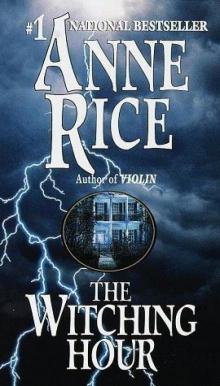 The witching hour lotmw-1
The witching hour lotmw-1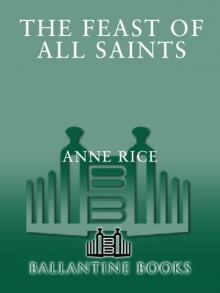 Feast of All Saints
Feast of All Saints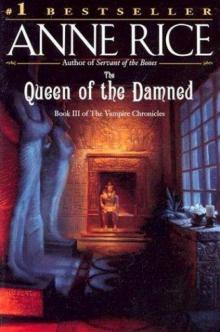 Queen of the Damned
Queen of the Damned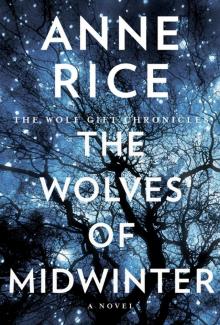 The Wolves of Midwinter twgc-2
The Wolves of Midwinter twgc-2 The Mummy
The Mummy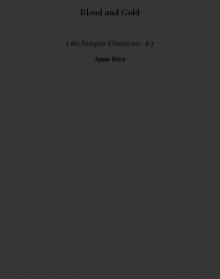 Blood and Gold tvc-8
Blood and Gold tvc-8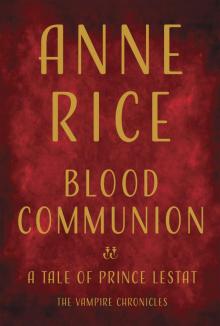 Blood Communion
Blood Communion Interview with the Vampire tvc-1
Interview with the Vampire tvc-1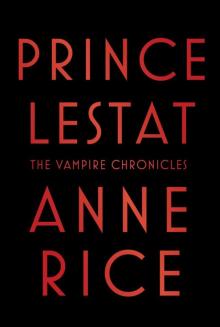 Prince Lestat: The Vampire Chronicles
Prince Lestat: The Vampire Chronicles